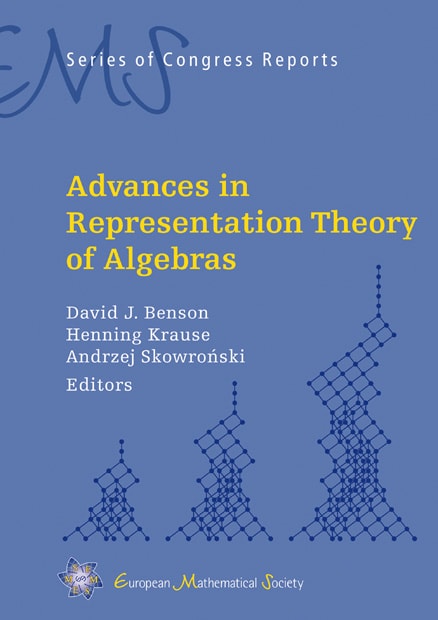A survey of modules of constant Jordan type and vector bundles on projective space
David J. Benson
University of Aberdeen, UK

A subscription is required to access this book chapter.
Abstract
This is a transcription of a series of four lectures given at the Seattle Summer -School on Cohomology and Support in Representation Theory and Related Topics, 27–30 July 2012. These were repeated in a mildly compressed form as a series of three lectures at the Workshop on Representations of Algebras in Bielefeld, 8–11 August 2012. Most of the material here also appears in greatly expanded form in a set of notes available online [2], which I eventually hope to publish as a book. This document may serve as an introduction to that longer work.
The sections here correspond to the lectures given in Seattle. The first lecture introduces the concept of modules of constant Jordan type, and develops some of their properties, especially the question of what Jordan types can occur. To get much further with this subject it is necessary to work with vector bundles on projective space. So the second lecture gives an algebraic introduction to this subject, and explains how vector bundles arise from modules of constant Jordan type. We give an outline of the realisation theorem, which states that (up to a Frobenius twist if is odd) every vector bundle comes from a module of constant Jordan type. The third lecture introduces the theory of Chern classes, and uses these to provide restrictions on the behaviour of modules of constant Jordan types. In particular, this explains the appearance of the Frobenius twist for odd in the realisation theorem. Finally in the fourth lecture we give a short algebraic proof of the Hirzebruch–Riemann–Roch theorem for projective space. Schwarzenberger’s conditions on Chern roots are usually regarded as a consequence of Hirzebruch–Riemann–Roch, but in our development the logical order is reversed. Hirzebruch–Riemann–Roch is then used to provide further restrictions on possible Jordan types of modules.